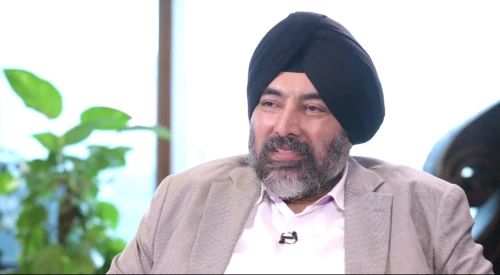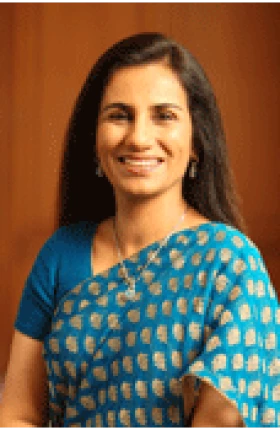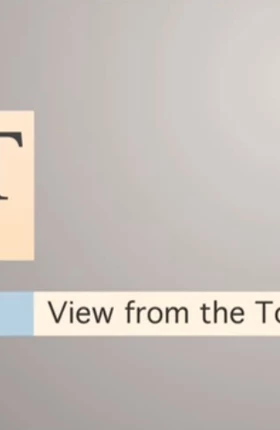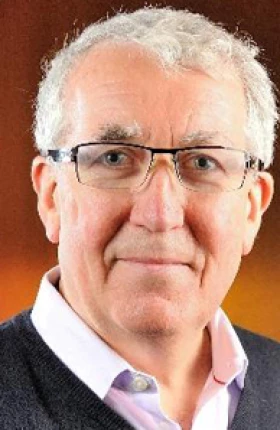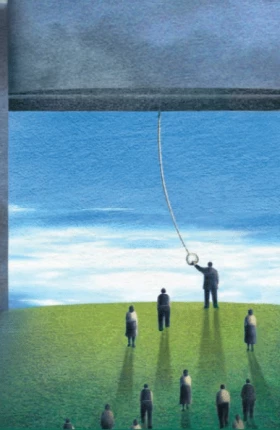Asia is a complex region, home to more than 4 billion people, dozens of countries ranging from among the wealthiest to the poorest in the world, and myriad languages and ethnic groups. Banking is an equally complex undertaking, especially with the regulatory and public scrutiny brought on by the global financial crisis more than five years ago.
At the intersection of this complex region and complex industry sits Jaspal Bindra, the group executive director and chief executive officer, Asia, of Standard Chartered Bank. His answer to this complexity is not even-more complex solutions but rather a return to tried-and-true management practices: strong leadership and alignment throughout the organization, consistent and simple communication, and a relentless focus on business fundamentals. Bindra also believes in the power of one-on-one conversation to get to the heart of important issues facing Standard Chartered.
Bindra does not discount the power of technology or big data to resolve issues. He believes in both. But he also recognizes that banking, like so many other industries, is fundamentally a people business. When people are engaged with their work and believe that their voices are heard, they are more likely to be willing to surface the tough issues that arise in a complex world and work to resolve them.
Bindra recently sat down for a discussion with Janmejaya Sinha, chairman of BCG’s Asia-Pacific region, to discuss complexity. Edited excerpts from that conversation follow.
Since the global financial crisis, we have seen a much greater degree of volatility in the world—and the highest level we have ever seen in financial services and banking. Has your job become more complex?
Banking has probably seen the worst of the volatility and complexity, particularly since the global meltdown in 2008. And I think we can all be certain that there is still more to come. The real issues for us are regulatory and competitive pressure—and the poor perception that the public has of the banking industry.
You run one of the most complex regions in the world. It has 4 billion people. It has mature economies and developing economies. It has strong states but also many poor people. How do you deal with this?
Complexity is testing vested interests, vested authorities, and vested structures in the organization. Complexity is now compelling change.
The effectiveness of change management comes down to good leadership. If we can get good leadership percolating down through the company, that will enable us to overcome the complex environment.
There has to be strong alignment across the company on shared objectives: a consistent, simple message, like the mission of NASA to put a man on the moon. You need that level of alignment throughout the organization as a basic first step.
How would you help people think about creating shared objectives in a team?
It is really about leadership—and not just at the top end of the company but also leadership pretty far down. For that to happen, I think, requires two other things. First, the firm must have the maturity to empower people—and that takes lots of courage. Second, it also must have the maturity to accept unintentional mistakes; it must not have a shoot-the-messenger kind of culture.
Other than leadership, what are some of the levers you use to deal with complexity?
Three things come to mind. The first one we are currently implementing: simplifying the structure. As you keep growing aggressively over the years, organizations can get quite complex. This is a good time—when the world is moving at a slightly slower pace—to simplify the structure. We are not looking to save. While there might be some element of cost, it’s really about productivity. It’s about having people who wake up and want to come to work because they don’t have to put up with the bureaucracy or the complexity that they have in the past.
The second one we learned from Silicon Valley and we are trying to apply at the bank: defining our core. For sustainable growth, there has to be a core proposition. I think that for a long time, we went with the flow. And I think now we are getting quite mindful about defining our core. It is easier to do it for some businesses and more difficult for others.
The third is technology. I think we need technology to create capacity. We need technology in today’s world to mitigate operational risk. And of course it also adds to productivity.
Let’s talk about big data, complexity, and connectivity. There is this avalanche of information, which is coming in all the time. How do you keep a pulse on what’s real? How do you distinguish between the signal and the noise in your work?
It’s a day-to-day challenge. Once an issue reaches significant scale, it is very easy to engage with. The real prize is picking up on those issues early. A truism about human behavior is that you always address the urgent quicker than you address the important. It takes a level of intuition combined with experience to get to things early and then to be able to balance the urgent and the important.
I believe that however much that you rely on data, nothing beats the power of conversations. That is the most effective way of taking a pulse. People tell you more than they will ever write. When people look you in the eye, you get a gut reaction or at least a track record of belief or distrust.
I have been intrigued and fascinated by one facet of your personality, which is the ability to create bonds of loyalty with people that extend even when they leave your organization. How do you create such loyalty among the teams that you work with?
The basic tenet is that you want to allow access to people. They just can’t understand why you’re so busy or why you’re traveling. For them, it is their 10 minutes, or their half an hour. I think they want you to listen because fewer and fewer people in the world today have the capacity to listen genuinely. It makes a huge difference in every relationship.
If you show that you are actually interested in what they are saying, that demonstrates your caring, which lasts much longer than anything else. If I were to sum it up in a basic tenet, I would just say I enjoy people, whether they are colleagues, customers, friends, or family.
What is the legacy you would like to leave? What would you like to be remembered for?
I will break it into two bits. The first is to be a role model of equal opportunity for Standard Chartered. I belong to an ethnic minority, even in my home country. I am one of a handful at Standard Chartered.
The second thing is probably a more meaningful legacy. I have had the opportunity in this role to engage very actively with all our key stakeholders, including a large percentage of our colleagues. I have access to a large number of our clients, particularly our top-end ones. I have to deal with regulators across several countries. And, of course, I regularly deal with all the major investors. Each stakeholder obviously makes a judgment about every executive in his own way, with his own prejudices, perceptions, and preferences. If I could end up in most of those judgments as one who made a difference, then that will count as my legacy.
